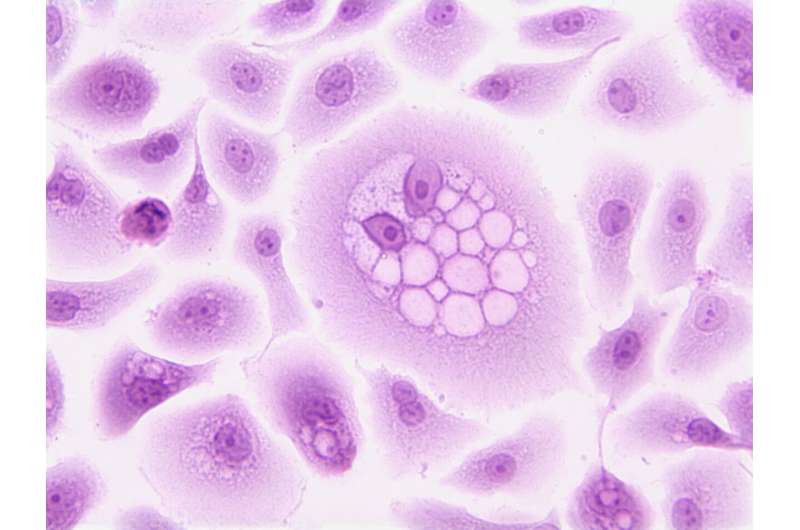Stage 0 Cancer: The Early Warning Sign Often Missed

Stage 0 cancer, also known as carcinoma in situ, is the earliest form of cancer where abnormal cells are confined to their original location without invading surrounding tissues. Despite its non-invasive nature, detection of stage 0 cancer is crucial because early treatment can significantly improve outcomes. One common example is ductal carcinoma in situ (DCIS), a type of breast cancer where abnormal cells are found inside the milk ducts. Since stage 0 cancers rarely cause symptoms or lumps, they are most often identified through screening methods like mammograms.
A prominent example highlighting the importance of early detection is Tina Knowles, the fashion designer and mother of Beyoncé. In 2023, a routine mammogram uncovered two tumors in her left breast, one benign and the other malignant. She was diagnosed with stage 1 breast cancer and underwent surgery, becoming cancer-free. Knowles shared her story to emphasize the importance of regular screenings, especially after missing a mammogram during the COVID-19 pandemic. Consequently, her cancer might have been detected at stage 0 had she maintained her screening schedule.
Stage 0 cancer is not unique to the breast; similar pre-invasive changes can occur in other organs, such as the cervix and colon. Although these early abnormal cells are usually detected via screening and are asymptomatic, some experts debate whether the term "cancer" is appropriate, suggesting alternative terms like "precancer" or "non-invasive cancer" to better reflect their low immediate risk. Research indicates that up to 40% of untreated DCIS cases could develop into invasive cancer over time, although the annual risk remains around 3%. Current medical practice generally recommends treatment options like lumpectomy, mastectomy, radiation therapy, or hormone therapy to remove or control these abnormal cells.
Some in the medical community are exploring active surveillance — closely monitoring low-grade lesions without immediate intervention — although this approach is still controversial due to the risk of silent progression. The prognosis for stage 0 cancers is highly favorable, with five-year survival rates approaching 99%. This underscores the significance of early detection efforts, which can lead to effective treatment and excellent outcomes.
Despite the benefits, diagnosing stage 0 cancer can be emotionally distressing. Patients often experience anxiety and uncertainty about whether treatment was necessary or if watchful waiting would suffice. Support systems and open communication with healthcare providers are vital during this process. Routine screenings like mammograms are instrumental in catching these early changes, offering a window of opportunity for intervention. Ongoing research aims to improve diagnostic tools to better distinguish lesions that require treatment from those suitable for monitoring.
Overall, the message is clear: maintaining regular health checks and screenings can be life-saving. Early detection of stage 0 cancer provides a crucial chance for successful treatment and highlights the importance of proactive healthcare measures for everyone.
Stay Updated with Mia's Feed
Get the latest health & wellness insights delivered straight to your inbox.
Related Articles
Innovative Blood Pressure Measurement Method Offers Hope for Patients with Limited Arm Access
Researchers have developed a new method for accurately measuring blood pressure at the ankle, aiding those unable to have arm readings and potentially reducing misdiagnoses worldwide.
Link Between Emphysema Detected on CT Scans and Increased Mortality Risks in Asymptomatic Adults
A groundbreaking study links emphysema detected on baseline lung CT scans in asymptomatic adults to a higher risk of death from COPD, cardiovascular disease, and all causes over 25 years, emphasizing the importance of comprehensive lung health assessment.
Aspirin Significantly Reduces Recurrence Risk in Colorectal Cancer Patients with Specific Genetic Markers
A low-dose aspirin regimen has been shown to cut the recurrence risk in colorectal cancer patients with specific genetic mutations, offering a promising avenue for personalized therapy.
Early Childhood Brain Wiring as a Predictor for Future ADHD Risk
New research suggests that the neural wiring of children's brains in early childhood can help predict future attention challenges, including ADHD. This breakthrough highlights the importance of early neural development and potential for targeted interventions.



